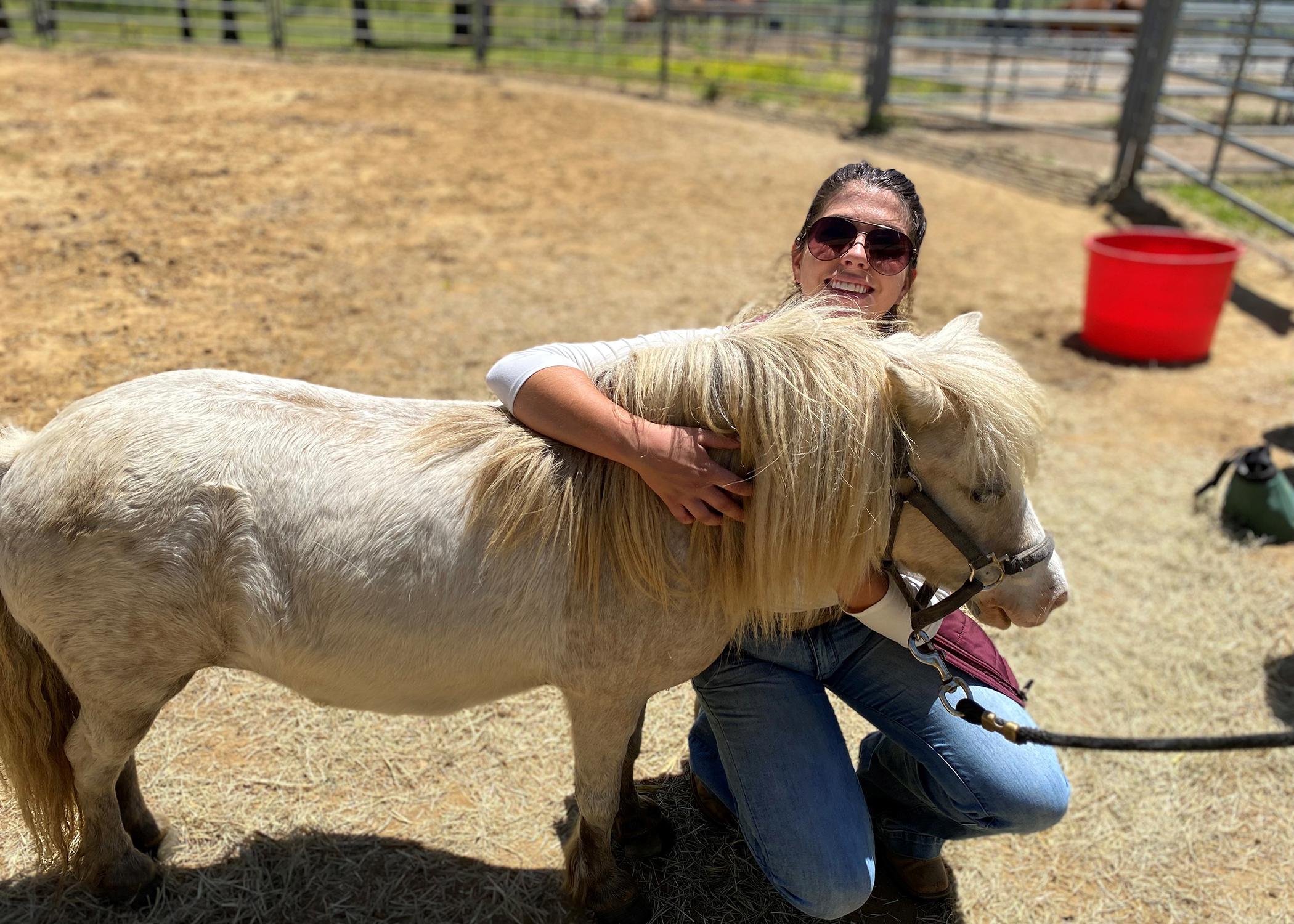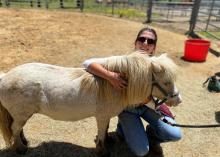Research shows positive effects of human-horse interactions
STARKVILLE, Miss. -- Although much of civilization is intertwined with the use of horses, these animals are much more than beasts of burden, and research today continues to look at the bond between horses and humans.
Clay Cavinder, Mississippi State University Extension Service equine specialist, said one of the reasons equine-assisted therapies are so effective is that horses have the ability to physically and emotionally interact with people.
“Research has found that horses have the capacity to feel emotions as well as perceive human emotions,” Cavinder said. “Because of this and their sensitivity to body language, they can perceive emotions at a level most humans do not and react accordingly.”
Horses react to situations in a raw, instinctive manner, and they react to the emotions of the people they interact with.
“Especially with the help of properly accredited mental health professionals, this often causes humans to recognize the physical presence of emotions they are unaware they are projecting and work to resolve these emotions,” he said.
Cavinder and Molly Nicodemus, an MSU associate professor of animal and dairy sciences, are among the researchers exploring aspects of this bond, particularly in the way it improves the lives of the people who work with horses.
One study looked at including equine interaction for young adults during the COVID-19 pandemic who were in psychotherapy at a residential treatment facility. Another examines human-horse interactions when psychotherapy participants are undergoing substance withdrawal.
“Psychotherapy incorporating equine interaction, known as PIE, is emerging as an effective treatment for substance use disorder; however, research concerning physiological impacts of PIE during substance withdrawal is lacking,” Nicodemus said.
The research investigated the impacts of PIE on salivary cortisol concentrations and heart rates in both human patients in withdrawal and the horses they interacted with. The study found that by week two, human heart rates and rates of cortisol, a stress hormone, were lower, but horses had higher cortisol levels.
“Results indicate equine interaction during psychotherapy is effective at mitigating stress for patients in withdrawal in the treatment program, even if they do not interact with horses but are in an equine environment,” Nicodemus said.
Some of the work is being done at the MSU-operated Elizabeth A. Howard Therapeutic Riding and Activity Center in West Point. Other work is being done at the Dogwood Wellness Group in Starkville and at the Oxford Treatment Center in Oxford.
For the last several semesters, MSU has offered an equine stress and wellness event before finals, allowing students to take a break from the stress of studying and interact with horses to improve their mental well-being.
The event had a few simple parts. After learning a little about the horses, students spend time grooming, petting and feeding them. Then they lead their assigned horse through several obstacles, asking them to perform different maneuvers.
“Horses live in a hierarchal herd, meaning they need a confident leader,” Nicodemus said. “Students took on this role and worked together to complete several tasks in the arena.”
The event ended with students spending quiet time with their horse while it grazed, which is a relaxing activity for horses.
Visit for more information on MSU’s equine program.
News Story Contact
Your Extension Experts
Related News
Pages
Related Publications
Pages
- « first
- ‹ previous
- 1
- 2
- 3
- 4




